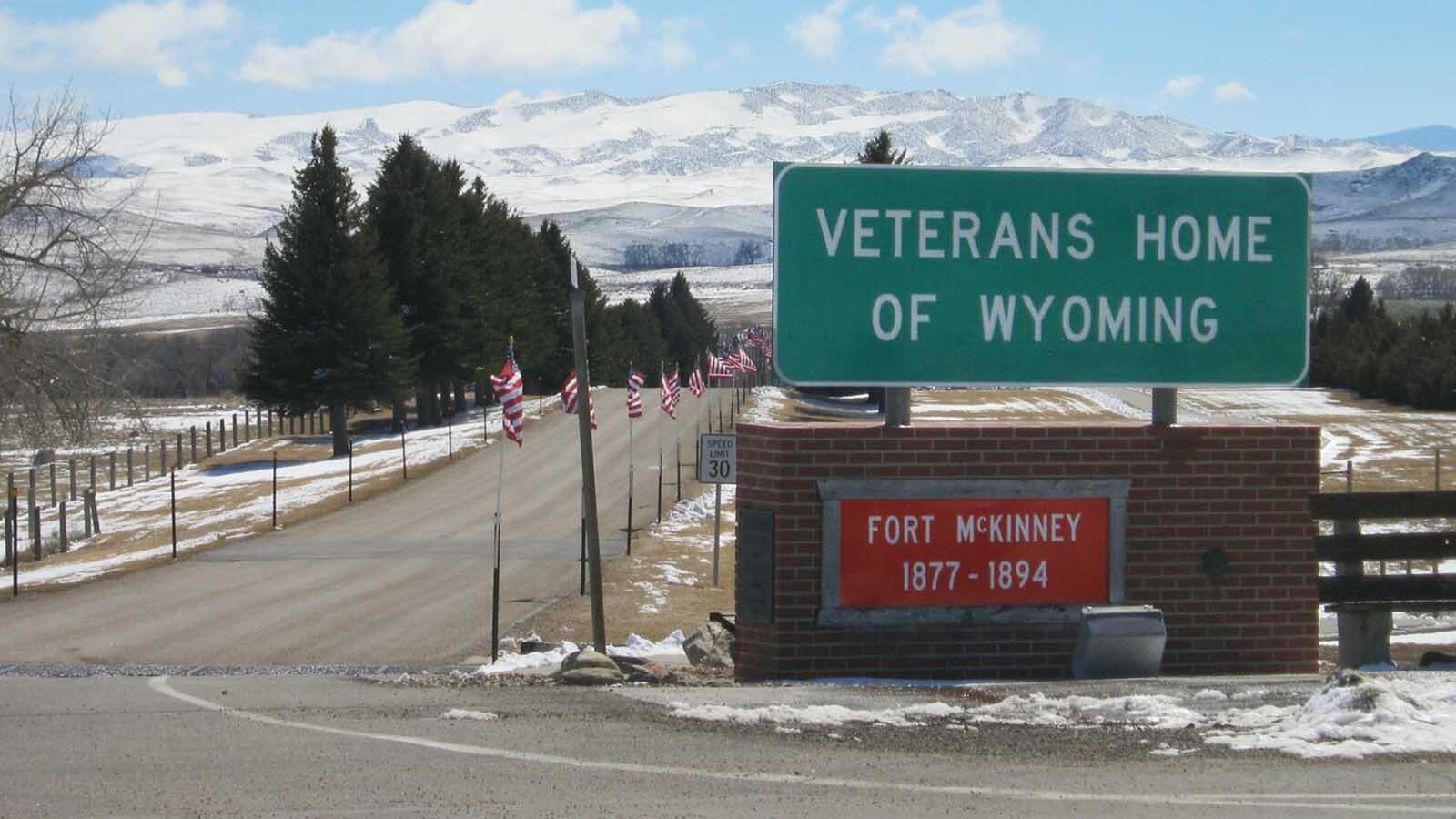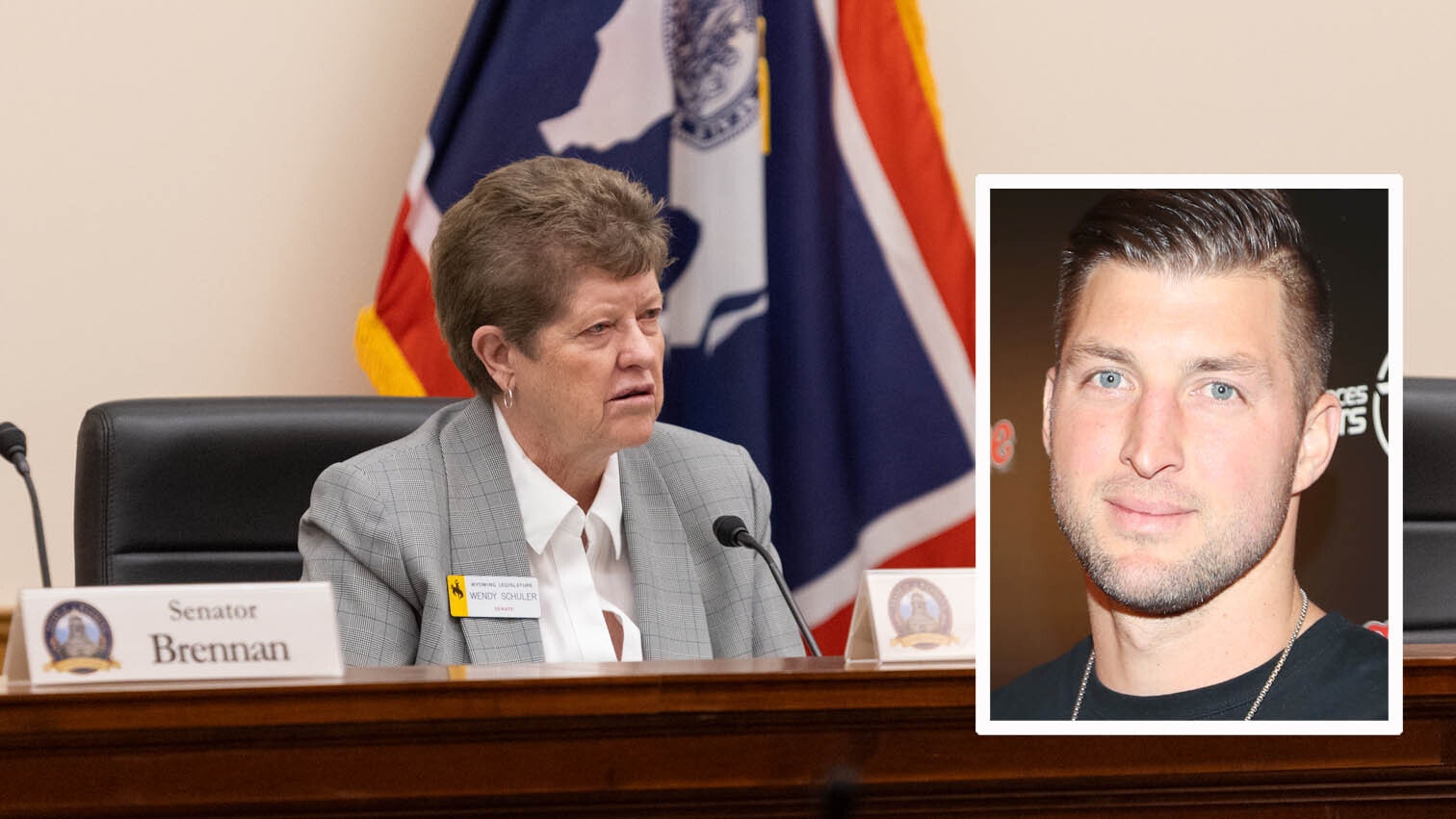Editor's note: Political reporter Leo Wolfson is on assignment in Montana covering the U.S. Senate race.
BIG SANDY, Mont. — It would be hard to find someone in Montana Democratic U.S. Sen. Jon Tester’s home of Chouteau County that denies his local roots. In his hometown of Big Sandy, population 599, most people have known each other and their families all their lives.
Robert Boettcher, 92, remembers Tester as a child working in his parent’s butcher shop. From that butcher shop as an adult, Tester would offer up state Rep. Paul Tuss, D-Havre, half- and quarter-slabs of beef.
Big Sandy Mayor Shaud Schwarzbach worked his first job for Tester on the senator’s farm when he was in the sixth grade. Schwarzbach would ride his bike 13 miles each way to get to Tester’s farm, where he would often shovel manure in a red barn that now frequently shows up in the senator’s campaign commercials.
“As a kid I learned how to work from Jon Tester,” Schwarzbach said.
But the hometown-oriented message of Tester’s campaign may be losing steam.
New polling showing his Republican opponent, Tim Sheehy, having a 6 percentage point lead in the race. That’s prompted the Cook Political Report on Thursday to shift its prediction of the race from “Toss Up” to “Lean Republican.”
Unique Dynamic
The political leanings of Chouteau County represents an interesting dynamic when considering Tester’s voting record and party affiliation.
Former President Donald Trump won the county by 30 percentage points in 2020. Tester’s hometown of Big Sandy is no different, Schwarzbach said, exhibiting a preference for Republicans. The city and county is now represented by two Republicans in the Montana Legislature.
The first political sign visitors see when entering Big Sandy from the south is for Sheehy.
Tuss, who lives in nearby Havre, explained to Cowboy State Daily that people in his area are still more concerned with a lawmaker’s ability to help the local community rather than party affiliation. Tester won Chouteau during his 2006 and 2012 elections, but lost it in 2018.
Tuss can speak to this point from personal experience, first elected in 2022 after Trump carried his Hill County by 14 percentage points two years earlier.
Like Tester, Tuss considers himself a moderate Democrat. He has a Trump bobblehead in his office that he goes to when he wants an affirmative answer on a question.
“I think it has far less to do with partisan affiliation, and I think it has far more to do with effectiveness and engaging in those issues that matter to your neighbors,” he said. “It doesn’t matter if I have an R or a D behind my name, the truth is that people want to know does our infrastructure work? Can I send my kids to quality schools?
“It’s the meat-and-potato issues that, in my opinion, are far more important than partisan labels.”
In the past, Montana has shown a propensity to elect some Democrats to public office despite being solidly Republican overall. As recently as 2008, the Democrats held a majority in the Montana Senate, but those days are a bit of a distant memory as they now make up a super minority for representation.
Tester came through the local ranks first as a member of the Big Sandy school board, which he served on for a decade.
In 1998, he was elected a Montana state senator after his neighbor, a Republican, decided not to run for reelection, according to the “Almanac of American Politics.” By 2005, he rose to president of the Montana Senate.
Term limits prevented Tester from running for another term in the Legislature, and in 2006 he ran for and was elected to the U.S. Senate.
Loyalty Only Goes So Far
Schwarzbach, whose farm borders Tester’s, said he leans Republican with his voting record.
“Some folks say Jon votes a little bit more with the (Democratic) Party line than some would like to see,” he said. “This is a conservative area, a conservative community, so there’s some concern for some.”
Thirty-seven miles south of Big Sandy is Fort Benton, the oldest city in Montana and the county seat of Chouteau.
Gathering at the historic Grand Union Hotel for dinner Thursday night were Wayne and Debra Clark, who said they’ll vote for Sheehy as they view Tester as too liberal.
Debra Clark said Tester would never show up for one her local board’s meetings when invited.
“He didn’t care,” she said.
Tuss and Schwarzbach both said that although some Republicans in their area may still feel a local loyalty to Tester, they may look past those feelings this election when considering what’s at stake for the U.S. Senate race.
The race will likely swing the balance in the upper chamber, determining whether Republicans or Democrat hold a majority. A Sheehy win would nearly guarantee Republicans take the majority.
“At the end of the day … is that people want to know things are getting done,” Tuss said. “People want to support politicians who are effective. People want to support people who vote for the interest of the communities that support them.”
Local Look
Many of Sheehy’s campaign ads have criticized Tester for forgetting about Montana and spending more time in Washington, D.C., but Schwarzbach said he sees Tester on his farm every weekend.
Schwarzbach said he holds back on asking Tester for help unless it’s a particularly large issue, but when he does, he said the senator has always been responsive.
“He’s one of my favorite people to work with,” he said. “As a community member, he’s top-notch.”
Schwarzbach admitted he sometimes gets frustrated by Tester’s votes, but tries not to let the media narrative or partisan spin drive his opinion.
“There’s so much misinformation on both sides and not enough folks do their homework,” he said. “I know there’s BS on both sides.”
He does, however, have issues with some of Tester’s votes on immigration and the southern border.
“Jon could have helped more to be more vocal against his party,” he said.
Big Sandy is about one hour from the Canada border, where Schwarzbach said he also hears about issues from the Border Patrol there. Schwarzbach said he has seen an increase in drug trafficking in his community as well as an influx of new residents who don’t appear to be holding jobs as local employers struggle to fill openings, which said the mayor said, “makes you scratch your head and wonder.”
“You can tell some of the activities and dynamics have changed,” he said.
The Positives
Schwarzbach, Tuss, Boettcher and Fort Benson resident Connie Jenkins all agree Tester has done legitimate good for their local communities, with Tuss and Schwarzbach citing the St. Mary Diversion Dam, North Central Montana Regional and Fort Belknap water projects.
“Jon did fight for us through that process,” Schwarzbach said.
Jenkins, a Democrat, said she appreciates Tester’s ability to work across the aisle with Republicans, which she believes is emblematic of Montana’s culture.
Boettcher, also a Democrat, is concerned about Sheehy’s desire to privatize all health care. The Big Sandy Medical Center, the local hospital, is located in his backyard. There was also a public wellness center set up nearby as a result of COVID-19 funding.
“That could eliminate about 55 of these local little hospitals like we’ve got here in Big Sandy,” he said.
Fatigue
Most people in Big Sandy aren’t very tuned into the day-to-day events on Capitol Hill.
Farming is king in these parts, and the downtown streets of the small town were quiet Friday morning. The hottest topic of conversation in the local library was the high school football game scheduled for that evening.
The barrage of campaign advertisements has been almost endless in the U.S. Senate race, with each side slinging mud. Tuss said people are ready for the race to be over and he questions how many people are undecided at this point about who they will vote for.
“Fatigue is over the top,” Tuss said. “They’re ready for the ads to stop, they’re ready for the mailers to stop, they’re ready for the radio ads to be done.”
Great Falls resident Ray Powell is a felon who can’t vote. Powell told Cowboy State Daily he hasn’t paid much attention to the race and doesn’t believe it will make much of a difference who wins.
Controversial comments Sheehy made saying about Natives Americans being drunk in the morning, Tuss believes, could have an impact on the final result of the race.
A Native American, Powell said he believes the attacks made against Sheehy for his comments are “horseshit.”
“Anything they can throw at him they probably will,” he said.
What the race will impact is whether Republican- or Democrat-favored legislation passes into law over the next two years in Congress. That, for Schwarzbach, is not insignificant.
“People are going, ‘What about our country, what about our nation?’” he said. “Change is good.”
Leo Wolfson can be reached at leo@cowboystatedaily.com.













